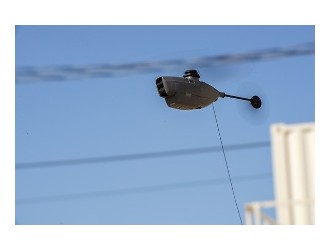A second major airline equipment failure in three weeks produced another round of apologies and once again exposed the vulnerability of interconnected IT systems. Following the latest glitch, a travelers rights organization called for ticket refunds to remain in effect for up to a year.
Delta Air Lines blamed an early-morning “power outage” at its Atlanta headquarters on August 8 for disrupting operations worldwide. By 1:30 p.m. ET in the afternoon, 1,679 of nearly 6,000 Delta flights had been dispatched and 450 cancelled. Media outlets reported that thousands of passengers were stranded at airports.
The airline’s initial explanation of the root cause differed from that of utility Georgia Power. “We believe that Delta Air Lines experienced a failure overnight due in part to an equipment malfunction. The equipment is called a switch gear—that’s the cause of the outage,” Georgia Power spokesperson Craig Bell told AIN. “Our crews are out standing by and working closely with Delta crews to get them back on line, but the power never stopped. We never experienced any outages and none of our other customers across the state were impacted by this.” The switch gear is housed in a Delta facility in Clayton County, Ga., part of the Atlanta metropolitan area, Bell said.
In a video posted on Delta’s website, recently appointed CEO Ed Bastian apologized to customers and assured that an “all hands on deck effort” was under way to resolve the problem. Bastian started as Delta CEO on May 2, succeeding Richard Anderson, who retired after more than eight years as chief executive. Anderson remains executive chairman of the airline’s board of directors.
Delta said it will refund tickets for any cancelled or significantly delayed flights and waive change fees for rebooked flights through August 12. Those remedies proved unsatisfactory for Travelers United, a Washington, D.C.-based nonprofit organization that represents the interests of consumers who travel using airlines, rental cars, cruise lines, railroads and hotels.
“Travelers United urges Delta to allow passengers up to a year from the date of cancellation to use their airline ticket funds,” the organization stated. “Forcing passengers to change their dates of travel and upend their lives because of a Delta mishap is unreasonable. This is a problem completely of Delta’s making, not the fault of passengers.”
On July 21, Southwest Airlines experienced a similar “technology malfunction” attributed to a router failure that caused it to cancel 2,300 flights over four days. COO Mike Van de Ven similarly apologized in an online video; nevertheless Southwest pilots’ and mechanics’ unios called for both he and CEO Gary Kelly to resign.
In an August 8 statement, Fitch Ratings said Delta’s system outage pointed to the importance of IT systems to the airline industry. “The heavy reliance on computer reservation systems and the interconnectedness of airline schedules means that even minor outages tend to cause ripple effects that affect the network well beyond the time of the initial outage,” the ratings firm observed. “…While most of the operators in the North American airline industry, including Delta and Southwest, have the financial flexibility to tolerate events such as these without harming their credit ratings, outages like the ones reported in recent weeks can generate a material amount of negative press and ill will with passengers.”





